If you want to establish a chamber group, playing well is only the beginning. Tully Potter offers some practical advice to help groups make an impression and stay ahead
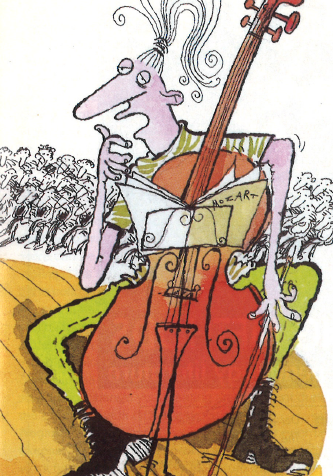
You are members of a young chamber ensemble, you enjoy working together and your progress is promising. You are well coached, you are building up some repertoire and you are just beginning to think that you may stay together and enter the profession as a group. But are there extra-musical factors which can influence whether you are successful with the public or not? Well, yes, there are, especially since we live in an age in which presentation is becoming ever more important.
Some of the points that follow will seem obvious, but performers who get all the obvious things right are well on their way to a successful start. This article is written as if for a string quartet, but most of the advice remains true for any chamber ensemble.
Platform deportment It is very important that the audience has faith in you from the word go, even before you play a note. Always try to look purposeful as you come on stage: rehearse your entrance, including the order in which you walk on, taking a bow together and so on. Don't slink or slouch on to the platform. Remember you are in the entertainment business and try to give the impression that you are looking forward to entertaining the audience. Don't look anxious, either before you begin, or, even worse, while you are playing. There is no need to grin glassily, but a quietly cheerful expression will send out the right signals. Sort your music out before you come on to the platform, so that you can spend the minimum of time preparing page turns et cetera.
If it is appropriate to introduce any of the music, do so clearly and briefly - a long meandering monologue will be forgotten by the audience before you have finished speaking. During the performance, avoid exaggerated movements: quite apart from the possible effect on your intonation, it makes some members of the audience nervous, undermining their concentration and spoiling their enjoyment. When you are applauded at the end, look pleased - and again, be certain to rehearse bowing together and making your exit. If you are a mixed ensemble, let the female members of the group go off first. You may find it revealing to video some of your entrances, exits and other platform behaviour.
Tuning Always tune offstage. If a piano is involved you will want to check your tuning with it - and it will reassure the audience if you do - but you can usually complete it in a quick session before the audience is admitted to the hall. Cultivate the art of checking your tuning by left-hand pizzicato and tune between movements as little as possible. There will always be nightmare occasions when a new string or excess humidity makes it necessary to tune more frequently; the point is to keep it to a minimum, as the audience can become restive and irritated by too much of it.
Clothing Concert dress can become an issue, especially for mixed-sex ensembles. Some groups have even made a feature of it, seeking the help of a designer, but that expense will be beyond the reach of most young groups. Try to invest in several different sets of clothing - formal, less formal and casual - and gauge the likely preference of your audience. You can always ask the concert organiser if you are in doubt, but it is generally better to err on the side of formality. With a little ingenuity it is not too difficult to have several options available without spending a lot of money. Even if you prefer colourful garments, it will help the audience to attend to your music, rather than your clothes, if you can harmonise your appearance in some way, even at a casual concert. Too many soft hues can be a little soporific for the listeners, while too many bright ones can be distracting. If you have invited a guest artist it is courteous to make sure that he or she is well informed about what you are wearing.
Quartet seating Seating is something you will want to work out for yourselves, choosing the plan with which you feel most comfortable as a group. It can be useful, however, to remember the ways in which your placing affects the sound that reaches the audience. The classic way of seating a string quartet was to position both the violinists at the front; this is still the best plan for music of the classical era, where there can be significant interplay between the two violins. This arrangement is my personal preference; if the cello is at the front, it can often seem that one hears the bass line first. If you want to seat the two violins together - and their co-ordination is of course extremely important - it is better to place the viola (often the slowest-speaking instrument) at the front, opposite the leader. But there is no reason why you should not change your seating arrangement during the concert to suit different types of music.
Programming This aspect of concert life is becoming excessively predictable: probably a Haydn or Mozart work first, a 20th-century work before the interval and a Beethoven or Romantic work in the second half. Try playing your modern work or your late Beethoven first, when both you and the audience are fresh. Put a mature piece by Haydn or Mozart in the second half for a change. Include a solo, a duo or a trio in your programme occasionally. lf you have a string of identical concerts to play, shuffle the order of the pieces to keep your responses alert. You will find that placing a particular work in a new context will alter your whole attitude to it.
Encores A well-chosen, well-played encore can set the seal on a good evening. Equally, a badly chosen, tiredly played one can send the audience home feeling vaguely ill at ease. During rehearsals consider whether it will be appropriate to play an extra item at all: after certain works an encore can intrude on the mood of the audience. If you do decide to play one, make sure it is well rehearsed - and announce it clearly. Even if it is a well-known piece there will be people present who may not recognise it instantly, and trying to identify it could spoil their enjoyment. Do some research - there are many more suitable short pieces than you might imagine. It is also quite easy to find a piece to play as an encore with a guest such as a second violist or a pianist - the extra rehearsal time may well be worth it. It can be embarrassing when the audience obviously wants an encore and the performers have not rehearsed one.
Finance Be as scrupulous as you can about all financial matters, as these can be a cause of hidden resentments. It is best if one member of the group can look after your fees and expenses. Make sure you have regular, short business meetings - once a month, say, at the start of a rehearsal - so that all financial dealings are utterly transparent and understood by all parties. Another member could swot up the tax law as it applies to musicians, another could become the resident expert on insurance and yet another could be delegated to look for sponsorship. It can be extremely helpful to find a sponsor for a specific concert or project, or even for travel expenses - which can be heavy, especially if a cello or double bass is involved.
Business Someone must look after the business side, answering all letters, faxes or emails promptly and dealing with your agent, if you have one. If impresarios, overseas agents, public relations people or broadcasting organisations need to get in touch with the ensemble directly, it will help if they can contact one person who can speak for everyone. If you are entering competitions, remember that you need to get applications to the organisers in good time, as there can often be unforeseen snags to sort out.
Recordings If you are lucky enough to be offered a contract to record a CD, have faith in your ability and insist on a royalty rather than a one-off fee. lf the CD is not successful, you will have lost very little; but if it does well, you will reap some of the benefit.
Other chores You will find it useful if one of you can handle recording equipment: nowadays it should be possible to record all your concerts, and rehearsals of difficult new pieces, so that you can monitor your progress objectively. You can save money if one of you is able to write programme notes and if someone in your group or immediate circle has a talent for drawing and design so that you can personalise your flyers and programme booklets. lt will also save a lot of bother if one of you can do rudimentary instrument maintenance. Such jobs should be shared out as equally as possible, so that no one feels resentful about being lumbered with too much work. If routine matters are organised well, your main task of making music should be all the easier.
This article was first published in The Strad's January 2000 issue.

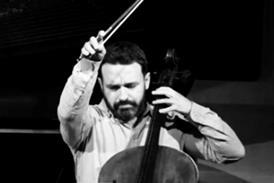
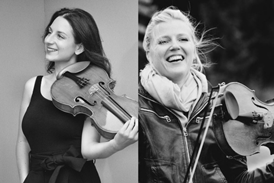
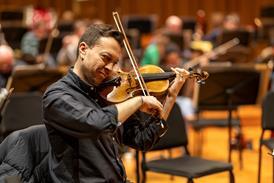


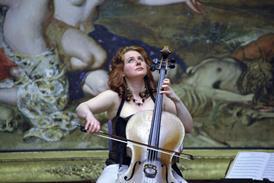
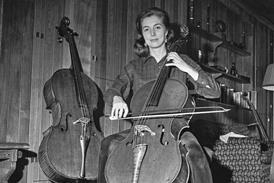





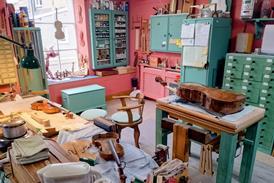
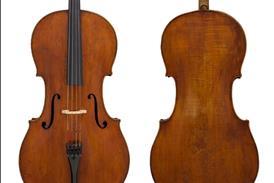




























No comments yet